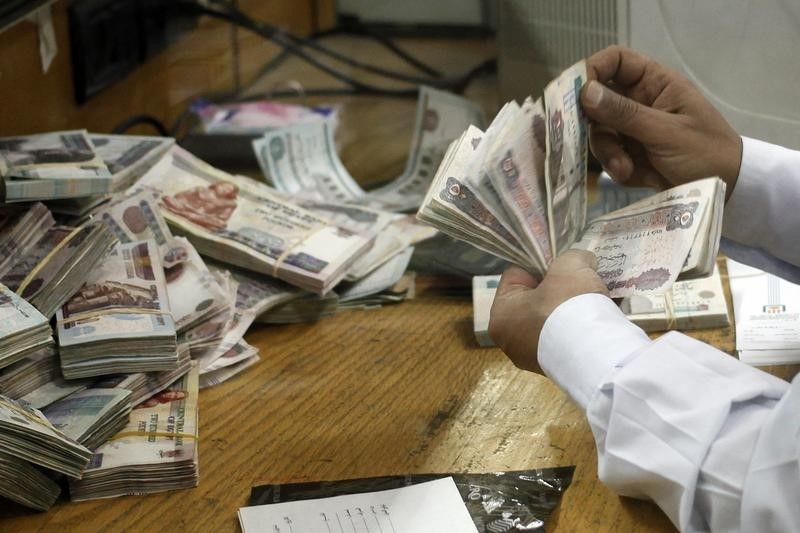Latest NEWS
- Aswat Masriya, the last word
- Roundup of Egypt's press headlines on March 15, 2017
- Roundup of Egypt's press headlines on March 14, 2017
- Former Egyptian President Hosni Mubarak to be released: lawyer
- Roundup of Egypt's press headlines on March 13, 2017
- Egypt's capital set to grow by half a million in 2017
- Egypt's wheat reserves to double with start of harvest -supply min
- Roundup of Egypt's press headlines on March 12, 2017
Egypt's pound hits new low of 7.34 per dollar - central bank

An employee counts money at a bank in Cairo September 4, 2014. REUTERS/Asmaa Waguih
CAIRO, Jan 21 (Reuters) - Egypt's pound weakened to 7.34 per dollar from 7.29 the previous day at a central bank auction on Wednesday, the weakest level it has been allowed to reach since auctions began in December 2012.
It was the fourth official depreciation this week.
The bank offered 40 million dollars and sold 38.4 million at a cutoff price of 7.34 pounds per dollar, according to the central bank.
The rates at which banks are allowed to trade dollars are determined by the results of central bank sales, giving the bank effective control over official exchange rates.
But there remains an active black market in the pound that is used by businesses and individuals, and the gap between this and the official rate had been widening for months.
The pound was trading at an average of 7.93 to the dollar on the black market on Wednesday, according to several traders.
The rate quoted yesterday was 7.88 in the afternoon after the bank's depreciation, but traders say it rose to eight pounds per dollar by Tuesday night. "There is no demand to buy dollars in the unofficial market today (Wednesday)," said one trader, citing yesterday's evening jump.
Analysts said that the gradual depreciation was a welcome sign but the bank would need to do more. "The central bank probably still needs to provide more foreign exchange liquidity and let the pound fall further if it's going to 'eradicate' the black market," said Jason Tuvey at Capital Economics.
Expectations that the bank would devalue had grown since it announced a surprise 50-basis-point cut in benchmark interest rates on Thursday last week, saying that plummeting global oil prices had eased the inflation outlook.
Traders and analysts expect the central bank to allow the pound to depreciate further to close the gap with the black market rate. Some said it had previously held back due to inflation concerns.
(Reporting by Shadi Bushra; Editing by Mark Heinrich)










